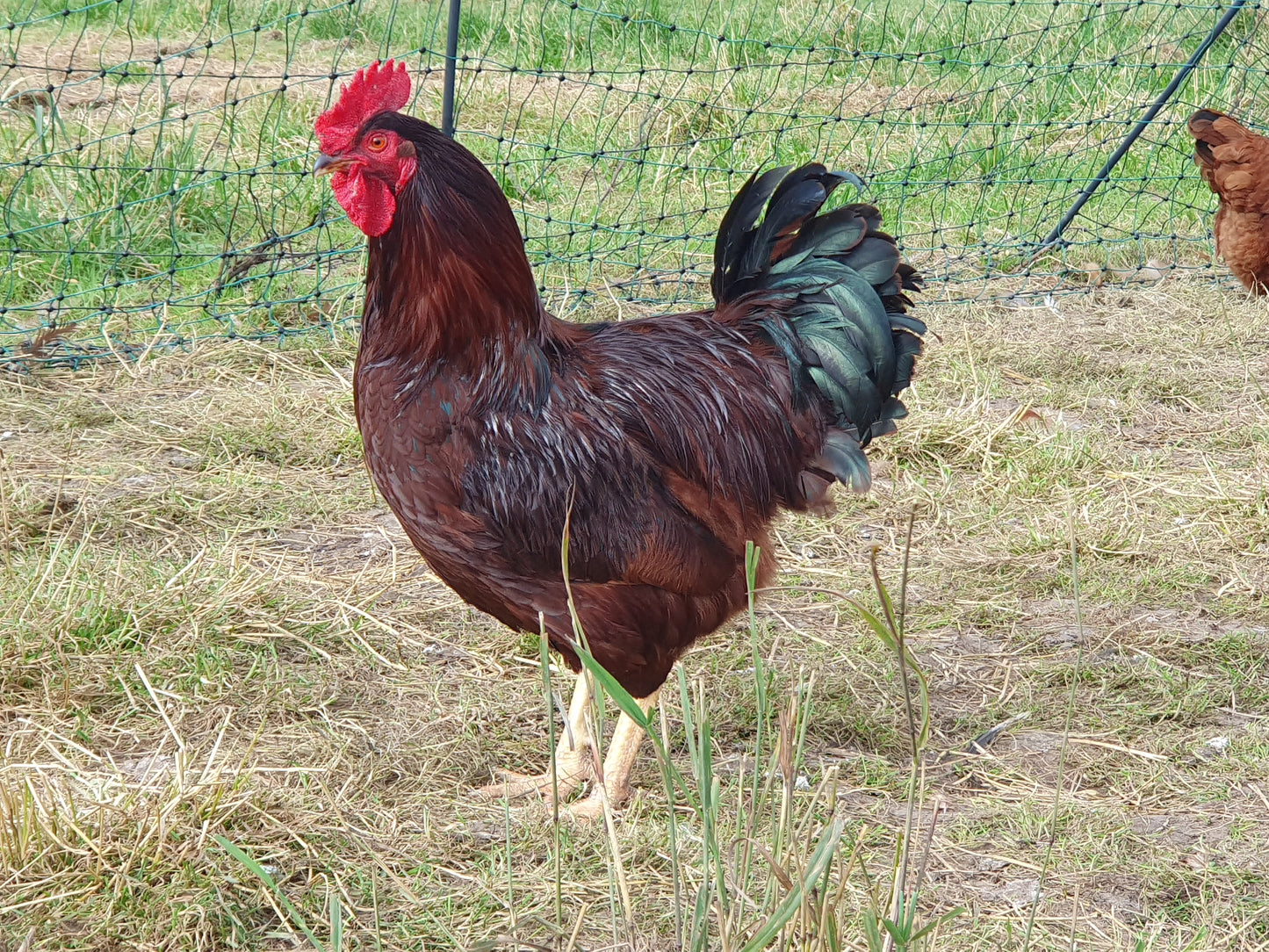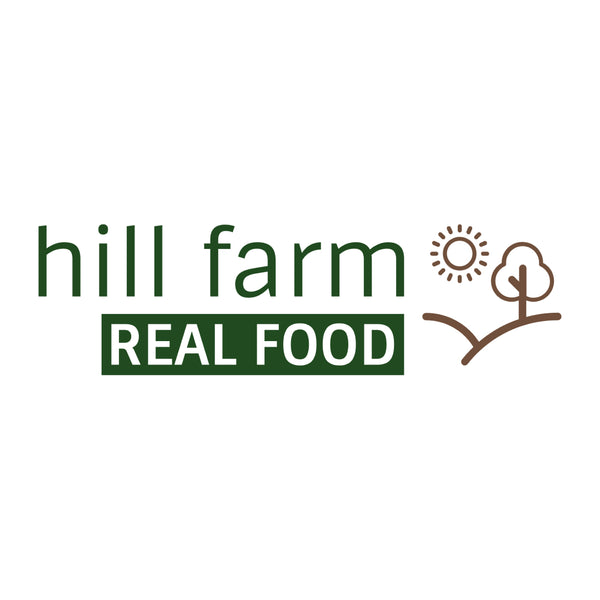Traditional Roasting Cockerel (limited supply)
Traditional Roasting Cockerel (limited supply)
Couldn't load pickup availability
A traditional breed cockerel. We rear these boys slowly and treat them like kings. They are fed an organic, GM-free, soya-free ration and are given ample access to fresh grass pasture. This all adds up to make the ultimate chicken experience.
This is how chicken used to taste, and harks back to a time when a roast chicken was an occasional treat for many families - before mass-produced bland chicken from highly bred fast-growing freaks took over.
We're passionate about 'dual-purpose' breeding - it's more ethical and means less waste. When we breed and rear hens for our laying flocks - as well as the female chicks which go on to lay eggs, this of course creates male chicks - but instead of treating the males like waste (which happens commercially) we treat this as an opportunity to let them live a happy life and create a unique, healthy, artisan meat.
This is completely different than any other chicken you can buy. It takes a lot of time and effort. We harvest our fully mature cockerels at approximately 6 months - contrast this with commercial chicken at 6 weeks (or even standard organic/free range chicken at 12 weeks). This allows them to develop a stronger flavour, and the meat is best described as 'hearty' but tender.
Please note they are not shaped like footballs like most commercial chickens - the excessive breast muscling most people are familiar with is actually because the commercial birds are genetic freaks. This is a more full-flavoured meat. It is juicy meat when prepared correctly but cook them a little slower because they don't have the high moisture content to inflate their weight like the 'commercial' birds have. Stronger bone development also adds to the flavour and nutrition in the whole-cooked bird. After enjoying the meat, ideally you'll want to use the remaining carcase for chicken soup, or bone broth... these are the best and there's so much nutrition to be had from 1 bird.
Share



Frequently asked questions
What makes Hill Farm products different from others?
Hill Farm Real Food is a family-run, regenerative organic farm where everything sold is grown on-site. Our cows are 100% grass-fed, certified ‘Pasture for Life’, and produce all-natural A2 milk protein, which is easier to digest. We never use Bovaer, antibiotics, or GM feeds. Our commitment is to produce high-quality food that benefits the environment and respects the physiology and welfare of all living things involved.
Are your dairy products pasteurized?
No, our dairy products, including milk and kefir, are raw and unpasteurized. This preserves the natural enzymes and beneficial bacteria, offering a product that’s as close to nature as possible.
What is A2 milk, and why is it important?
A2 milk contains only the A2 type of beta-casein protein, which is believed to be easier to digest for some people compared to the A1 protein found in regular milk. All our cows naturally produce A2 milk, ensuring a product that’s gentle on the stomach.
How should I store your products, and what is their shelf life?
Our raw milk and kefir should be refrigerated immediately upon receipt. Kefir has a shelf life of approximately 20 days when kept cold. Ghee and tallow are shelf-stable but should be stored in a cool, dark place.
Do you offer nationwide delivery?
Yes, we deliver our products across the UK. Please note that some items, like our eggs, are available for farm collection only due to their delicate nature.
How often do you restock your products?
We restock our webshop every Friday at 12 noon. If a product is sold out, we recommend checking back then.
Are your animals treated with antibiotics?
No, we never use antibiotics or chemical treatments on our animals. Our farming practices prioritize animal welfare and natural health.



